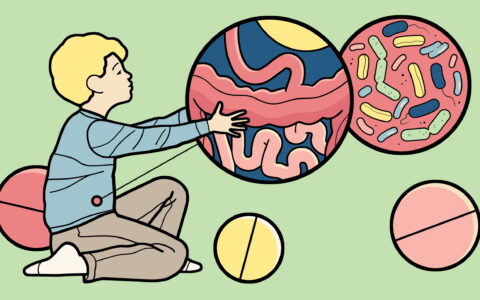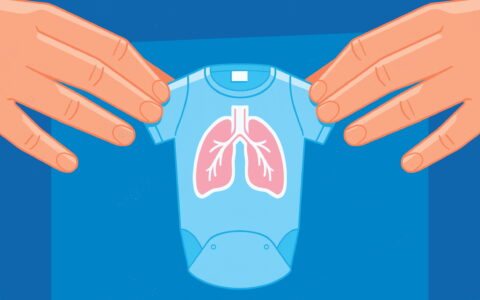As experience treating survivors of COVID-19 mounts, patterns of emotional and cognitive injury are emerging post-ICU and beyond. “We’ve had this seismic shift in support needs from a normal ICU population to this huge COVID-19 population, whose experience has been unique in many ways. We’re finding the cognitive and mental health outcomes are even more severe in many cases,” said James Jackson, Psy.D., director of behavioral health at the ICU Recovery Center at Vanderbilt University Medical Center.
As many as 20 percent of COVID-19 long-haulers and ICU survivors have post-traumatic stress disorder (PTSD). “We think it is due not only to the trauma of being critically ill, but also the fear of dying and the profound isolation they’ve experienced,” Jackson said. “Even though these patients survive, they may leave the ICU with a brand-new list of problems they didn’t have before related to anxiety, avoidance, and a paralyzing fear of developing COVID-19 again.”
“The games can be profoundly helpful and can offer a scalable method of impacting many people with cognitive impairment.”
Jackson has had a magnifying glass on these patterns while leading survivor support groups over the past 18 months. “While time in the ICU is certainly a strong predictor of long-term problems, the differences we’re seeing between those who have and have not been in the ICU are not as distinct as I might have predicted,” he said, especially in cognition. “In many who were never on a ventilator, who were never delirious, we are still seeing deficits in attention and processing speed, among many other problems.”
He worries that medical practitioners may not have the time or specific knowledge to get help for these patients. Taking up the charge, Jackson and a team of providers have provided group support for dozens of survivors to date through the Critical Illness, Brain Dysfunction and Survivorship (CIBS) Center. “We’re optimistic that the approaches and tools that have worked for these problems for a long time will work for COVID-19 survivors as well.”
Sorting Emotional from Cognitive Damage
Jackson says that separating emotional from cognitive deficits is always murky, since anxiety and depression often contribute to cognitive problems, but it is particularly true with COVID-19. For many patients, depression or anxiety experienced prior to their illness is exacerbated by the disease. Cognition resulting in COVID-19 long-haulers can be impacted for weeks, months or even longer, and can have life-altering consequences.
“We’re stretched thin, but our COVID-19 survivors say these support groups have sometimes been the single most helpful piece in fostering their overall recovery.”
Cognitive complaints are reflected in abnormal performance on neuropsychological testing. “One way to tackle the problem is head on, through rehabilitation or digital therapeutics, like what are popularly referred to as ‘brain games’,” Jackson said. “The other way is a little more oblique, by addressing the psychological issues that underlie cognitive impairment. By extension, if these improve, cognition improves.”
Brain Games for “Brain Fog”
Jackson says the “head-on” approach of prescribing targeted computer-based brain games has evidentiary support. In 2013, a seminal paper published in Nature demonstrated that older adults benefit from a precursor to the same platform studied and often recommended by the CIBS. “Fortunately, the greatest benefits seem to be in attention and processing speeds,” Jackson said. “These are among the most meaningful problems our patients have, since deficits in these areas lead to academic or job-related difficulties.”
While patients often improve significantly through traditional cognitive rehabilitation – which focuses on teaching compensatory approaches like list making – these are hard to scale. “We don’t have tens of thousands of therapists in this country to devote to this. The games, on the other hand, can be profoundly helpful and can offer a scalable method of impacting many people with cognitive impairment,” he said.
Currently, Jackson and colleagues, including Vanderbilt infectious disease expert, Keipp Talbot, M.D., are conducting a trial, CONTACT, to determine the effects of a particular video game on neuropsychological functioning.
Support Groups Top the List
On any given week, Jackson and colleagues hold group meetings for about 40 survivors of critical illness and COVID-19. These include an all-inclusive ICU survivor group, a family member group, and a COVID-19 long-haulers group. They are launching a fourth group, explicitly for COVID-19 survivors with cognitive impairments.
“We’re stretched thin, but our COVID-19 survivors say these support groups have sometimes been the single most helpful piece in fostering their overall recovery,” Jackson said.
“After their COVID-19 illness, many feel like the difficulties they’re grappling with – the problems with thinking and ability to work, problems engaging in hobbies – are theirs alone,” he said. “They are so grateful to share with others who are in their shoes.”





